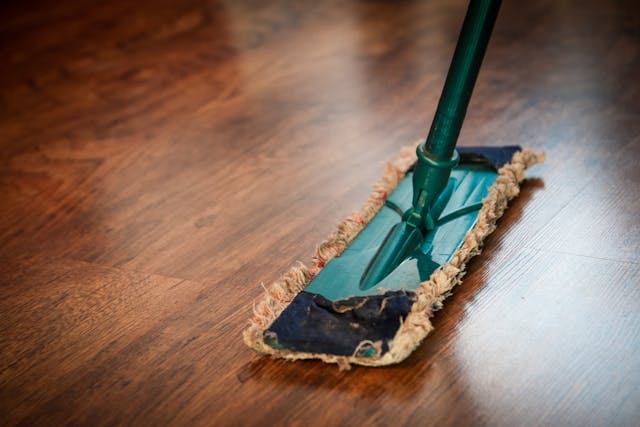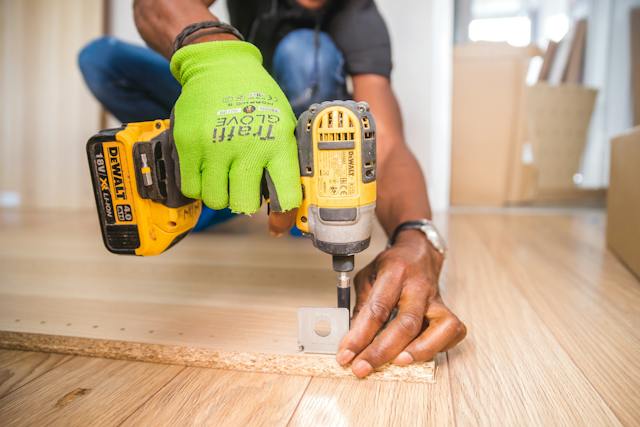
Are you concerned about how water damage could impact the value and safety of your rental property? Effective tenant screening can help you find renters who will promptly report maintenance issues, helping to prevent costly water damage.
As a landlord, protecting your investment from costly repairs and ensuring proper property maintenance is essential to avoid potential resident complaints.
Water damage is a common issue that can sneak up unexpectedly, whether through plumbing leaks, heavy rain, or poor drainage.
Left unchecked, it can lead to expensive repairs, mold growth, and even structural damage. Fortunately, there are smart strategies you can implement to safeguard your rental property.
In this article, we’ll explore practical steps to prevent water damage, helping you protect your property, uphold your lease agreement, and keep your residents satisfied. Keep reading to learn more!
Smart Strategies to Shield Your Rental Property from Water Damage
Here are ways to help landlords avoid water damage in their rental properties:
Regular Plumbing Inspections
As a landlord, staying on top of plumbing maintenance is critical to avoiding water damage. Pipes can develop leaks over time due to wear and tear, corrosion, or blockages.

Scheduling routine plumbing inspections at least twice a year ensures that small leaks or weaknesses are caught early, before they escalate into major problems.
Focus on key areas such as under sinks, near water heaters, and along walls with plumbing lines. Also, check for signs of slow drainage, water stains, or unusual odors, which can indicate hidden issues.
Maintain Proper Drainage
A functioning drainage system is essential to prevent water from accumulating around your property.
Clogged gutters and downspouts can lead to rainwater spilling over and pooling near the foundation, which over time can cause foundation cracks, basement leaks, or even structural issues.
As a landlord, make sure you clean out gutters and downspouts at least twice a year, especially in the fall when leaves and debris can easily block drainage.
Also, ensure downspouts direct water at least 5 to 10 feet away from the building to keep the foundation dry.
Install Water Leak Detectors
Water leak detectors are an invaluable tool for landlords looking to protect their rental properties from unexpected water damage.
These devices can be placed in high-risk areas such as under sinks, near washing machines, water heaters, or bathrooms where leaks are most likely to occur.

When moisture is detected, the sensor sends an immediate alert, either via an audible alarm or directly to your phone, allowing you to take swift action before the issue becomes severe.
Some advanced detectors can even shut off the water supply automatically when a leak is detected, preventing further damage.
Inspect Roofing Regularly
The roof is your rental property’s first line of defense against weather elements, making regular inspections a must.
A compromised roof can let in rainwater, leading to leaks, mold growth, and significant interior damage. As a landlord, you should inspect your roof at least twice a year, especially after storms or heavy winds.
Look for damaged, missing, or loose shingles, cracks in the flashing around chimneys or vents, and signs of sagging or water pooling. Even small roof issues can quickly escalate if left unattended.
Seal Windows and Doors
Water can easily seep into your rental property through poorly sealed windows and doors, causing damage to walls, floors, and even the structure.
Over time, weather conditions can cause the seals around windows and doors to deteriorate, allowing moisture to enter.
As a landlord, regularly check the caulking and weather stripping around all windows and doors, especially after seasonal changes. If you notice cracks, gaps, or peeling caulking, replace it immediately to maintain a tight seal.

Grade Landscaping Away from the Foundation
The landscaping around your rental property plays a crucial role in directing water away from the foundation.
Poorly graded land can cause water to collect around the base of the building, which over time can lead to foundation cracks, basement leaks, and structural problems.
To prevent this, ensure the ground around your property slopes away from the foundation at a gradient of at least 6 inches over 10 feet. This allows water to flow away naturally and reduces the risk of water pooling near the foundation.
Monitor Water Pressure
High water pressure might seem like a small issue, but it can cause significant damage to your property’s plumbing system over time.
Excessively high pressure can put unnecessary stress on pipes, increasing the likelihood of leaks, pipe bursts, and water waste.
As a landlord, it’s essential to monitor the water pressure in your rental property to ensure it stays within a safe range, typically between 40-60 psi (pounds per square inch).
If the pressure is too high, installing a pressure regulator can help control it and prevent strain on the plumbing system. Regularly checking the pressure can save you from expensive repairs caused by leaks or pipe damage and ensures your plumbing system remains efficient.
Educate Your Residents

Your residents play a key role in preventing water damage in your rental property. By educating them on the importance of water damage prevention, you can catch small issues early before they turn into costly repairs.
Encourage residents to report any signs of leaks immediately, such as dripping faucets, running toilets, or water stains on walls and ceilings.
It’s also helpful to provide them with tips on responsible water usage, like not overloading washing machines, avoiding pouring grease down drains, and keeping an eye on water bills for unusual increases, which could indicate hidden leaks.
Bottom line
Water damage can lead to costly repairs and unhappy residents, but with proactive measures, you can protect your rental property.
Brentwood Square Management Services, Inc. is here to help you prevent these issues. Our team offers expert guidance and tailored solutions to keep your property safe from water damage.
Reach out to us today to discuss the best strategies for your property and ensure long-term protection and peace of mind.
